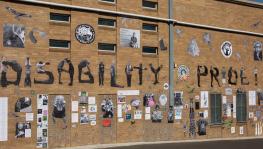
Get template policy: Disability Access and Inclusion
Kim Stewart, from the Ability Radio Project and 4ZZZ's Station Advocate for People with a Disability, has developed this excellent policy template to help stations document their disability access and inclusion.
The Australian community radio sector is dedicated to: “Access and equity, especially for people and issues not adequately represented in other media” (CBAA Codes of Practice 2008, Guiding Principles). This includes people with disabilities.
This policy is a statement of the intention of the station to make an effort to consider the particular needs of people with disabilities in planning and operations to the best of abilities. Relevant framing documents and resources are listed at the end of this policy.
Get more resources from the CBAA's Resource Library to assist your station further involve people with a disability.
Facebook comments